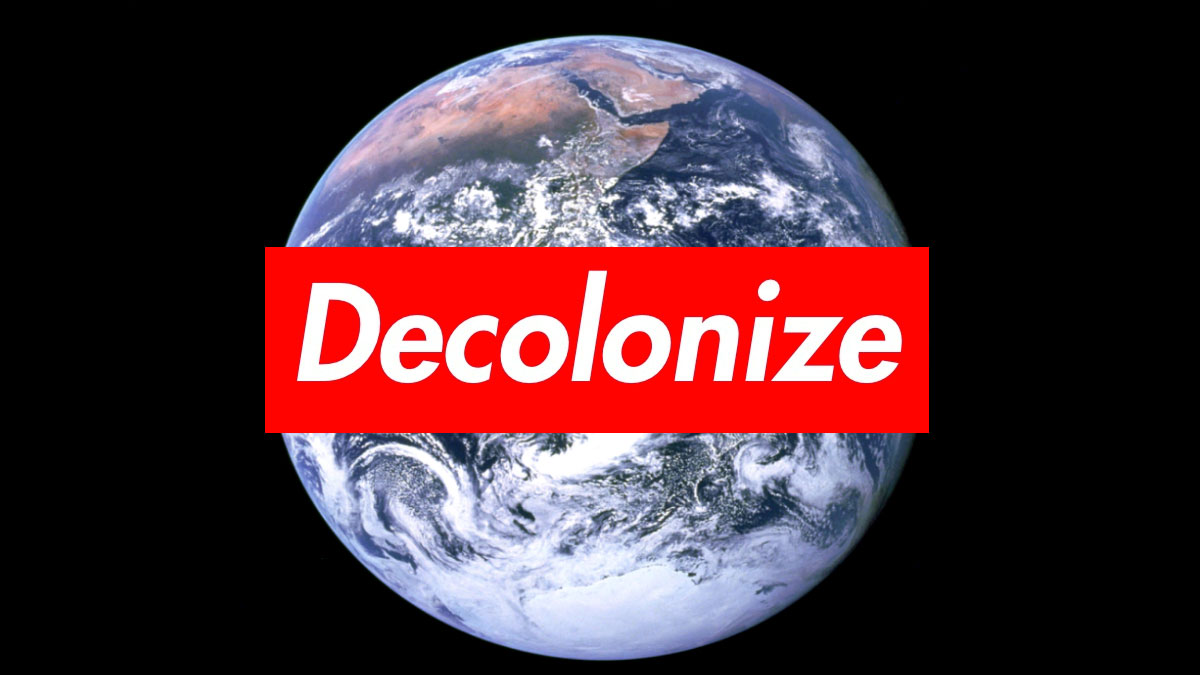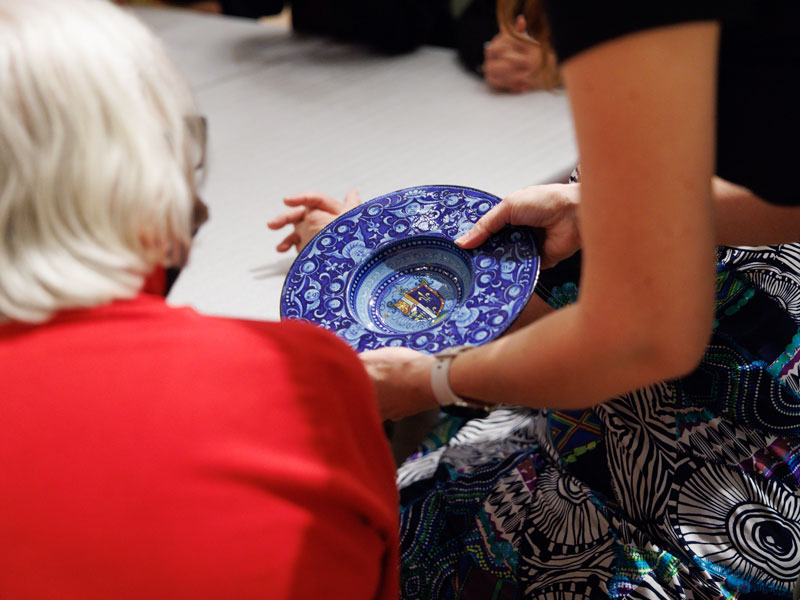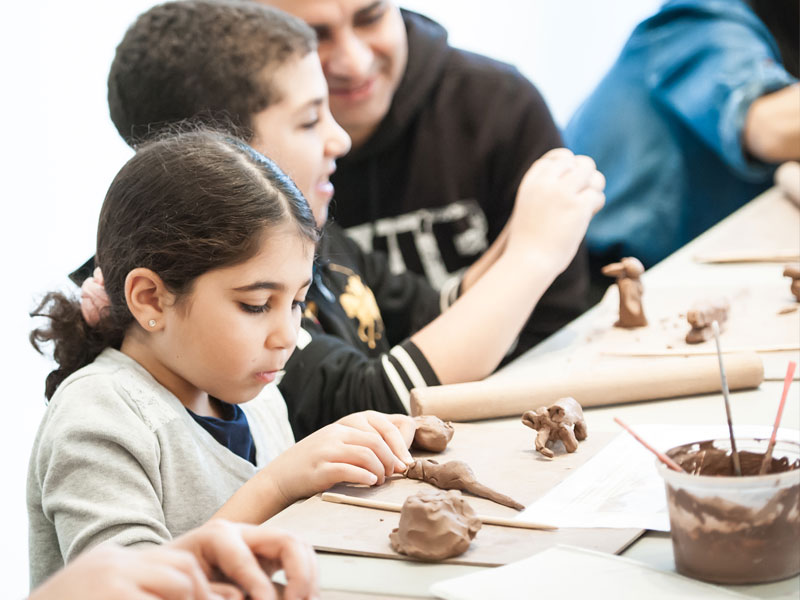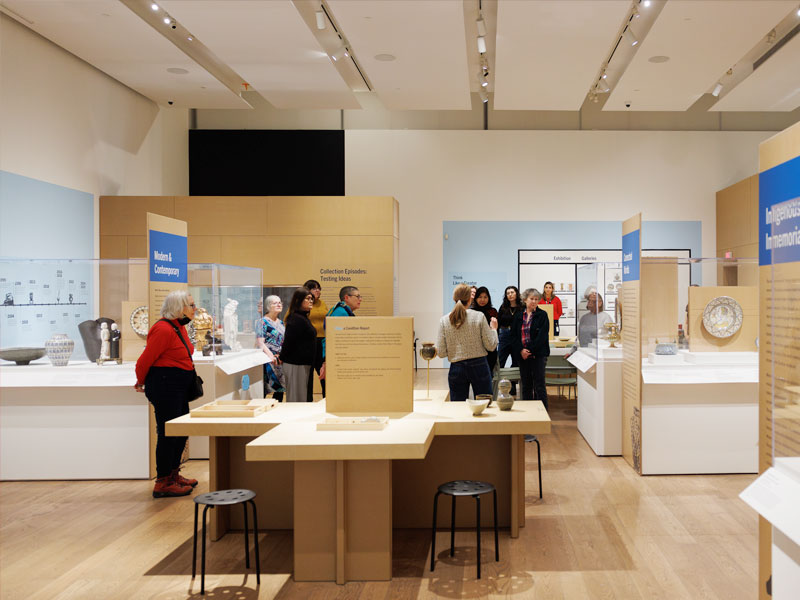Why Indigenous Knowledge Matters: Creating New Moral Fabrics in Settler Colonial Societies with Christine Migwans
The Gardiner Museum brings together people of all ages and backgrounds through the shared values of creativity, wonder, and community that clay and ceramic traditions inspire.

- This event has passed.
Why Indigenous Knowledge Matters: Creating New Moral Fabrics in Settler Colonial Societies with Christine Migwans
August 12, 2017 @ 1:00 pm - 2:30 pm

Part of the Community Arts Space: Art is Change
This talk will explore Indigenous conceptualizations of land, place, and decolonization. It will begin by focusing on settler colonial notions of linear time, modernity, and progress, and how these constructs are mobilized through the Indian Act and Canadian national narratives to delegitimize Indigenous knowledge, history, and presence. It will then move into a discussion of decolonial aesthetics, or how Indigenous artistic practices open up new pathways for sharing land. It will look at decolonial practices, and the embodied knowledge of Indigenous peoples, and the ways that centering Indigenous knowledge can rupture colonial geographies. By looking further into issues of epistemic injustice, or the politics of what is considered valid knowing, Indigenous and non-Indigenous peoples can move towards anti-colonial consciousness together.
The talk will be followed by a Sonic Meditations: Public Rehearsal.
About Feminist Art Museum
The Feminist Art Museum (FAM) is conceived of by curators Xenia Benivolski and Su-Ying Lee as a national, multi-site pilot project. FAM will use brick as a metaphoric and material reference to create a space for dialogue on institution building, place, space, and land.
FAM asks: What are ways of being on the land that have been supplanted by colonialism and patriarchy? What knowledge can institutions and culture makers access if seeking to approach these projects with a socio-political consciousness? Visitors to the Gardiner Museum are invited to participate in the symbolic building and disseminating gesture by contributing and bringing in their own bricks, which will become part of the installation in the gallery. The formation of the brick pile will take form over the course of the project as it grows.
Amid the installation, the exhibition hall will also host “riot rock rattles” made in a workshop facilitated by artist Tsēma Igharas, and public rehearsals led by artist Christopher Willes of Pauline Oliveros’ “Sonic Meditations” to consider the sonic as a way to take up space.
About the Speaker
Christine Migwans is an Anishinaabe defender of Indigenous rights. She holds two degrees in Indigenous Studies from Trent University. She has worked extensively with Indigenous peoples across Canada, south east Asia, and at the level of the United Nations. Her research interests include truth and reconciliation in global contexts, and repairing the moral fabrics of divided societies. She works to develop reconciliation pedagogies, and centers Indigenous knowledge to decolonize socio-political relationships, and relationships to the land. Christine co-wrote the play Hazards of Occupation with Marika Warner, which focused on shared labour, life, and land between Black and Indigenous women. It was directed by D’bi Young and was performed at Mayworks Festival of Working People and the Arts. She also sits on the steering committee of Naadmaagit Kii Group, an Indigenous led group which connects urban Indigenous youth with Elders, their peers and adult mentors while engaging them in land-based and cultural learning in Toronto.
About the Community Arts Space: Art is Change
The Gardiner Museum’s unique history and identity is rooted in the city, but its future is increasingly shaped by those beyond the core cultural corridor. As space increasingly becomes a premium downtown, the Gardiner has collaborated with six cultural and community partners to consider how institutional outreach can be re-shaped by local artists, curators, and architects. Looking to the rapid high-rise developments happening within the Museum’s own Yorkville neighbourhood, the projects in Art is Change consider how the city’s unique and varied local histories of art and social activism can be re-mapped for the future. Learn more



